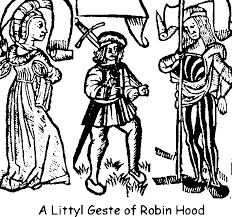 Politics is a curious business, and not just in the United States as the Big Day approaches: Here in Ontario, Canada, about a four hour drive from where I live, a nineteen year old Brock university political science student, Sam Oosterhoff, was just chosen as the upcoming candidate for the riding of Niagara West-Glanbrook, and could well be elected the youngest member of provincial parliament in the upcoming by-election. Students around the country still in their teens are now asking, hey, how about me? After all, if he wins, young Sam is guaranteed a hefty income (well into the six figures), plus expenses and top-tier-no-questions-asked benefits, along with all the power and perks of office, with an unending stream of sycophants at his feet.
Politics is a curious business, and not just in the United States as the Big Day approaches: Here in Ontario, Canada, about a four hour drive from where I live, a nineteen year old Brock university political science student, Sam Oosterhoff, was just chosen as the upcoming candidate for the riding of Niagara West-Glanbrook, and could well be elected the youngest member of provincial parliament in the upcoming by-election. Students around the country still in their teens are now asking, hey, how about me? After all, if he wins, young Sam is guaranteed a hefty income (well into the six figures), plus expenses and top-tier-no-questions-asked benefits, along with all the power and perks of office, with an unending stream of sycophants at his feet.
Yet, when I saw Peter’s boyish face beaming with victory, receiving kudos from all over Canada, I in my curmudgeonly Scottish mind could not help but think of the verse, or rather the curse, from the prophet Isaiah:
help but think of the verse, or rather the curse, from the prophet Isaiah:
And I will make boys their princes, and babes shall rule over them. (3:4)
A few verses later on, I was struck by the continuation of the prophet’s lament, which brought to mind a few of our other current leaders:
My people — children are their oppressors, and women rule over them. O my people, your leaders mislead you, and confuse the course of your paths.
I suppose Isaiah’s, and God’s, point is that, in any ideal world, which in any sense means a world before the modern one, grown, adult and independent men would not be ruled over by children or women. Yes, yes, I know, politically incorrect and all that, especially the ‘women’ part. Many would argue that the Jewish proscription against female rule was a culturally conditioned misogynistic prejudice, rife within Israel and the ancient world. But I am not so sure, for France had Salic law, forbidding any woman from attaining the throne, right up until the end of the monarchy in the French Revolution.
But I digress, for that is not my main point. Although we may agree or disagree with the conclusion, the principle is sound, which is that, again ideally, those less able to rule should not lead those more able to rule. Authority, defined as the “quality by virtue of which persons…make laws and give orders to men and expect obedience from them” (CCC, 1897), should flow from the ‘qualities’ of the person himself, his intrinsic and developed capacity to rule and govern others by his own virtue, gained by long and hard discipline and life experience.
Of course, the qualities that make for a good and virtuous leader will vary from society to society, and from culture to culture. In the days of the Old Testament, and up to quite recent times, it was required that a leader fight and lead his soldiers into battle; hence, the kingship was restricted to men, and men of military mettle at that.
Yet there are, of course, other qualities of leadership that are perennial and more fundamental, pertaining to all cultures across the board: Personal integrity, maturity, prudence and capacity to make decisions, trust from one’s subjects and, not least, disinterestedness in the perks, honours and prestige of authority, displaying a level of altruism, leading others as a service, not out of self-interest.
Which brings us to Saint Thomas, and why so many men seek authority, or any other ‘honour’, in the first place. In his first treatise in the Prima Secundae, discussing what might make men ‘happy’ (or, more clearly, ‘fulfilled’), he asks whether honour should be sought for its own sake. In other words, does honour and prestige make us ‘happy’?
He responds with a resounding ‘no’, for who would desire an honour outside of the actual good for which one is honoured? Would not any man be embarrassed to receive a trophy or reward he has done little or nothing to deserve? As Thomas clarifies in the reply to the first objection, to work for honour for its own sake “would no longer be a virtue, but ambition” (I-II, q.2, a.2, ad 1). It was not until I read this years ago that I realized ambition to be a vice.
And so we arrive at the nub of the problem: One should earn authority, or any other honour or privilege, and accept it for the good that is recognized in oneself, or that one might bring to the service bestowed. If one feels at all unworthy, one should do one’s best to hide and flee from the honour like the plague, for who would want to be unworthily placed over others, to lord it over them? Amare nesciri, Saint Philip Neri used to say, ‘love to be unknown’. Or in Christ’s own words, seek the lowest place, until He brings you higher.
When a new Pope is elected in a conclave, the first room he visits to vest in the papal garb is quite appropriately called the ‘crying room’, where he weeps, whether really or figuratively, over the unimaginable responsibility placed upon his shoulders, the souls of over one billions Catholics and six billion potential Catholics. No wonder the cardinals pray, or should pray, not to be chosen. Any one of them who votes for himself would be considered a madman.
Which brings me to my main point: Prescinding from the present case, why, in general, do so many seek the baubles of temporal authority, especially those who seem so manifestly unfit for them? As I have written before, in most cases, it is often the person who most desires the authority who should be the last one chosen (again, as the Gospels attest).
Ponder, in all honesty, why most people want to be politicians, doctors, lawyers, teachers, police officers and so on: Is it the intrinsic worth of the job, which they seek truly as a service, for which they see themselves in all humility as the most qualified? This is, of course, what they all say in the interviews, confessing a desire ‘help’ and ‘serve’ others, but that can be done in hauling boxes at food banks and in protesting abortion clinics.
Or are they in it for the money, the prestige and the power? Would they do it for half the money, or if the job lost its prestige, if people spat on you and reviled you, calling you all sorts of names; if you had a truly significant chance of persecution and even a violent death? I wonder.
That is why the poverty and hiddeness of religious life makes it so appealing from a spiritual and supernatural perspective. Whatever one says of Mother Theresa’s Missionaries of Charity (pace the hatchet job by the late Christopher Hitchens), they are most definitely not in it for the money, nor the fame, nor the comfort. They are just in it, as their name attests, for the love of God and neighbour.
Don’t get me wrong; there is nothing intrinsically wrong with the rewards of office, and few of us are called to the heroic level of sacrificial service of Mother Theresa. But we should ask ourselves, and ask of our would-be authority figures of whatever stripe, which intention predominates? Is it ambition, or is it zeal motivated by charity?
Which brings us back to our young Mr. Oosterhof. I have nothing against, and know little about, him. But if I we were ever to talk, I would ask him why he feels, in the bloom of his youth, that he is the one best qualified to run an entire riding, to govern men far older than he. It was illegal for him to quaff a beer but one scant year ago, the same span of time in which he has been able to vote. At this stage, outside of politics, in our stagnant economy, and with the few credits he has earned in ‘political science’ at Brock University, Sam would likely have to compete for a job at the local hardware store. I don’t mean to be overly critical of the man, only to assess him by the qualifications for leadership he presents. Perhaps he may prove to be a Doogie Howser of politics, a veritable genius in the art of governing, yet there is little proof of that.
Of course, the Trump argument is at the ready, ‘he’s better than the alternative’, and at least he’s a ‘social conservative’. Sure, I might vote for him if the other guy was all gung-ho for abortion and euthanasia. But if that is the minimal level of standard for governance to which we aspire, we are in deep trouble. But, come to think of it, we already are.
Analyzing the situation in Greece over two millennia ago, whence we derive most of our forms of rule, Aristotle supported aristocracy, which originally and literally means ‘rule by the best’, not by some privileged class, as the term seems to imply to our modern ear. This, rather, is oligarchy, rule by the rich and entitled few (which is what we now more or less have). In other words, Aristotle demanded that the ruler, or rulers, be virtuous (arestoi), demonstrating a capacity to govern in the broad sense, which is not surprising, since he likely adopted this from his own mentor Plato’s idealized philosopher-kings in the Republic, wise men with much experience, immersed in the greatest of what had been thought, at least up to that time. Even in their forms of democracy, or rule by the people, the Greeks restricted the vote to those whom they considered ‘virtuous’, generally land-owning citizens who were independent of governmental bribes and influence, and who had demonstrated that they were an asset, and not a burden, to the city-state. So much for the Clintons.
The standards to vote, to say the least have dropped to ‘eighteen and breathing’, and sometimes I am not sure about the second requirement.
We are a far, far way from Aristotle’s altruisitc ideal, alas, and I see little hope of returning. In the ‘old days’, governing was done as a service, parallel to one’s normal occupation. In fact, people took their turns serving their fellow citizens (a concept which still lingers ironically in the notion of the ‘public service’).
The argument is now made that we must pay our authority figures heftily and well, for otherwise ‘the best’ won’t be attracted, a concept which has led to the current enrichment of our political and governing class, all at the expense of the ‘taxpayer’, which means you and me.
I for one have never found that argument convincing, and not just because it leads to spiralling debt and bankruptcy. There were (and still are) innumerable admirable people who work not for money, but for the love of what they are doing (see, again, all those struggling faithfully in small apostolates and associations across the globe). Also, do we really see ‘the best’ go into politics and public service? On the contrary, the evidence seems to speak for itself: To paraphrase Saint Paul, if money and worldly honours really are just a big pile of dung, it is no surprise that more than a few flies will gather, who too often serve their own ‘lord’.
The deficiencies of many of our modern politicians, a comfortable lawyerly class, with limited philosophical acumen, sorely lacking in solid and rational moral principles, are all too evident. Yes, there are a few good men amongst them, who do what might be their best, but they are immersed, cocooned and drowned out, pick what metaphor you might, by a corrupt, byzantine system which stifles virtue and breeds complacency, self-aggrandizement and excess, shutting out the hoi polloi, the common man, from any real influence, who in frustration drowns in widespread unemployment, debt and misery, taxed well beyond his means and then some. The will of the people? That was left in the dust a long time ago. We are but pawns, whose votes are all they need (for now) in their quest for power and privilege, concentrated ever-more in Ottawa (or Washington, D.C., as your country would have it).
At least, so the perception goes, and there is much truth therein.
Which brings me to the U.S. and ‘the Donald’, himself not exactly an ideal candidate for authority: We need not wonder at the groundswell of popular acclaim for the manifestly imperfect, unready and unstable Trump whose tropes are hardly a voice for true conservatism, but who, like Mother Theresa’s Sisters, is not in it for the money (but at the other end of the spectrum, with too much of it), and he at least promises (with whatever sincerity, with his own ties to ‘the system’) to huff and to puff and blow the whole crooked house of cards down.
Is it then time for pitchforks and firebrands? Many of our fellow citizens certainly seem to be demanding a thorough and cathartic hosing of the Augean stables, not more political horses mutually nuzzling each other’s rumps, while helping themselves and their cronies to the trough.
Perhaps Trump is such a man, but we may never find out. What I do suggest is that until such a cleansing and purification occurs, by whatever means, it is no wonder that we, who have allowed this whole bureaucratic mess to metastasize into its current malignant form, will continue to be burdened with more and more inexperienced foals, broken down mares and tired-out geldings, with fewer and fewer heroic Hercules.
 Donald Trump has been elected the next President of the United States of America, an outcome that I, and many others, welcome, albeit with some degree of caution. As I wrote yesterday, he is a lot better than another four years of the Clintons in the White House, a quarter century after their first foray in the halls of power, a privilege upon which they are still living and cashing sizeable cheques.
Donald Trump has been elected the next President of the United States of America, an outcome that I, and many others, welcome, albeit with some degree of caution. As I wrote yesterday, he is a lot better than another four years of the Clintons in the White House, a quarter century after their first foray in the halls of power, a privilege upon which they are still living and cashing sizeable cheques.






